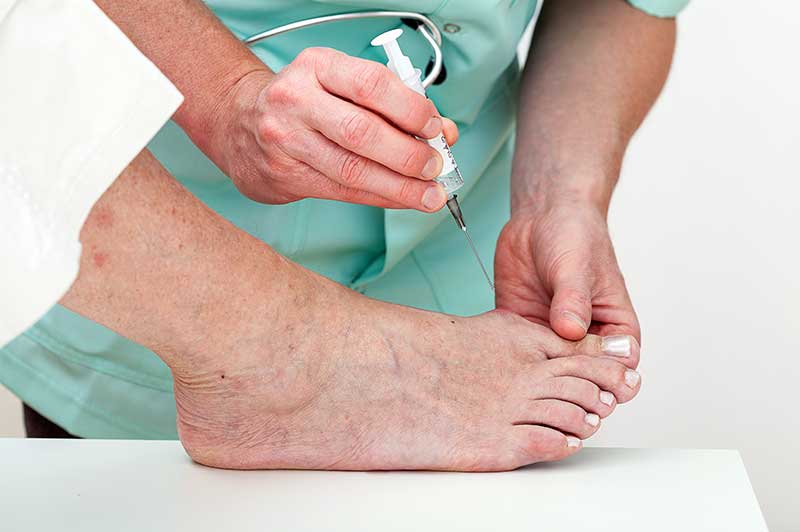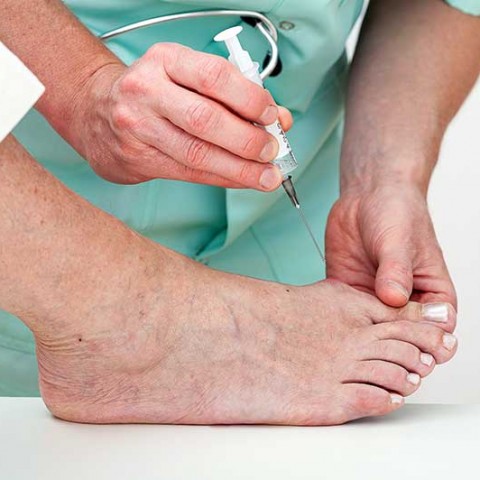Diabetes can damage the nerve endings of your foot which can reduce the sensation that you feel. This term is called peripheral neuropathy. When you have such condition, you will have a hard time avoiding soft tissue injuries because of your insensitivity to pain.
Diabetes can also affect vascular health and the circulation of blood in your peripheries most especially in your feet. Poor circulation can then equal to poor oxygenation and slower wound healing of the said body part.

Foot Care and Wound Healing
People with diabetes need specialised foot care for their wounds to properly heal. When wounds are not taken cared of well, the injuries will not heal quickly and infection may occur. A podiatrist is a specialist that can educate you and prepare you to manage your foot ailments.
Here are some quick tips to step up with your foot care:
- Have a podiatrist assess foot health at least twice a year.
- Wash feet daily and dry deliberately especially areas between each toe.
- Perform a daily foot inspection; make sure to watch out for sores, cuts, and bruises in all areas including the soles of your foot. Toes and toenails should also be checked.
- Make healthy lifestyle changes (lose weight, stop smoking, exercise, and avoid excessive alcohol intake).
- Cut toenails straight across avoiding nail corners.
- Corns and callus should not be removed without the advice of an expert preferably a podiatrist.
- Always wear protective footwear; avoid going barefoot even when at home.
- Use good fitting footwear; shoes that are poorly fitted can be the cause of foot problems.
- Avoid tight socks and hosiery; they may further impede blood circulation in your foot.
If you have diabetes and you want to have your feet assessed and cared for, feel free to make contact with us or drop by our centre. Our staff and competent podiatrists are ever willing to help you with your condition.

